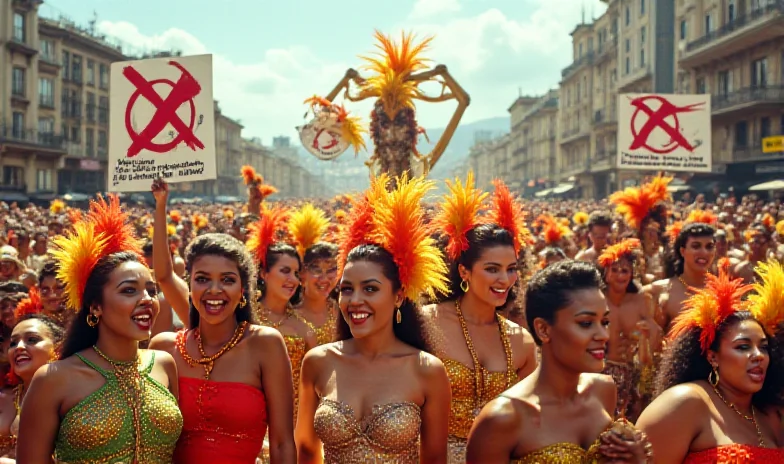The echoes of Nazism, a dark chapter in human history, continue to resonate in surprising and unsettling ways. From historical events to modern political anxieties, the specter of this ideology surfaces in unexpected corners of our world. Let's delve into some recent examples that highlight the enduring impact of this legacy.
Carnival and Confrontation: Rio's Anti-Nazi Past
The vibrant and flamboyant Rio de Janeiro Carnival, a celebration of life and culture, holds a hidden history of political defiance. In the 1940s, amidst the backdrop of World War II, the Carnival took on an anti-Nazi theme. Parades became a platform for expressing resistance against the rising tide of fascism. However, this period was also marked by tragedy. In 1945, José de Oliveira, known as "Matinadas," was fatally stabbed during a parade. The incident, recorded by a police commissioner, serves as a stark reminder of the passions and tensions that simmered beneath the surface of the festivities.

The Carnival, even in its most joyous moments, can become a stage for political expression. This historical episode underscores the complexities of cultural events and their potential to reflect and respond to the pressing issues of the time.
Modern Extremism: A Looming Threat
The fight against Nazism isn't confined to history books. In recent news, a court heard about a trio of individuals allegedly amassing weapons for terrorist attacks on religious sites. Their chilling goal? To ignite a race war. These individuals, described as "Nazis," planned to target mosques and synagogues, demonstrating the persistence of extremist ideologies and their willingness to resort to violence.
"The court heard how a trio of 'Nazis' allegedly amassed hoards of weapons in preparation for terror attacks on religious sites which they hoped would 'start a race war'."
This case serves as a disturbing reminder that hate and extremism remain potent forces in our society, necessitating vigilance and proactive measures to counter their spread.

Navigating the Present: Political Discomfort and Brand Associations
The association of brands and public figures with controversial ideologies can also trigger significant reactions. Following a recent election, some Tesla drivers have voiced their embarrassment and discontent, expressing a desire to distance themselves from a car they perceive as being linked to "literal Nazism." This sentiment, fueled by concerns about the political leanings of figures like Elon Musk, highlights the increasing sensitivity surrounding brand associations and their potential impact on consumer perception.
The power of association can be potent, shaping opinions and influencing consumer choices. This example shows how historical baggage and perceived political alignments can affect even seemingly unrelated aspects of modern life.

From the historical resistance displayed in the Rio Carnival to the anxieties surrounding modern political figures and brand associations, the shadow of Nazism continues to loom large, reminding us of the importance of vigilance, critical thinking, and a commitment to combating hate and extremism in all its forms.
The past, as they say, is never truly past. It shapes our present and influences our future. Understanding how historical events continue to impact contemporary society is crucial for building a more just and equitable world.
